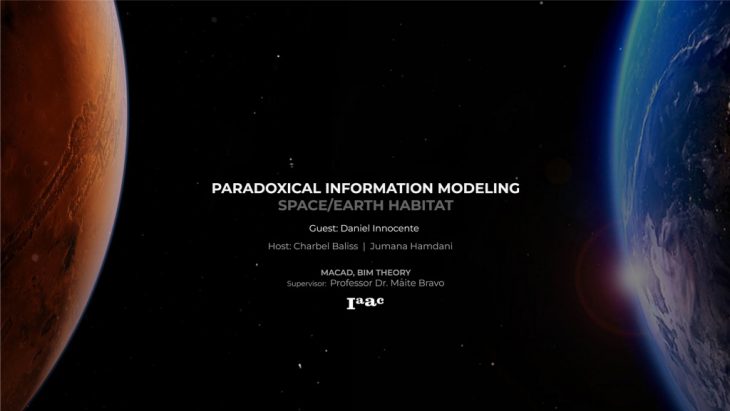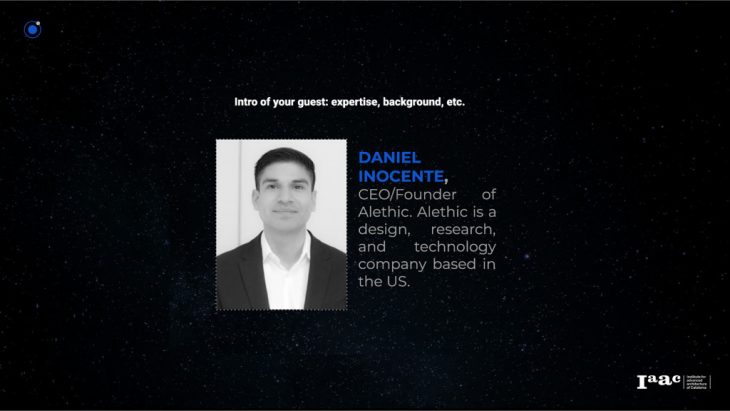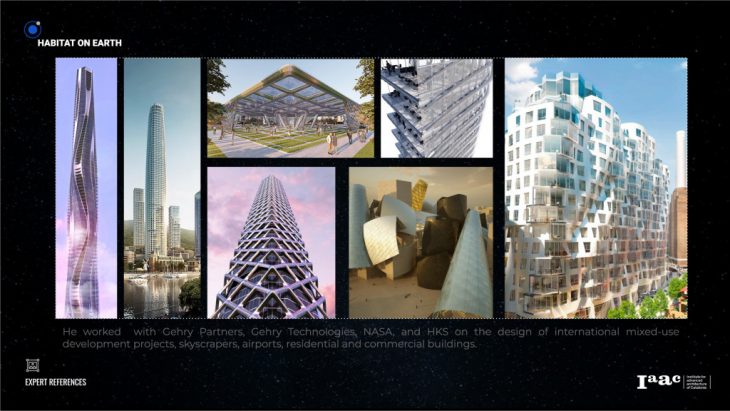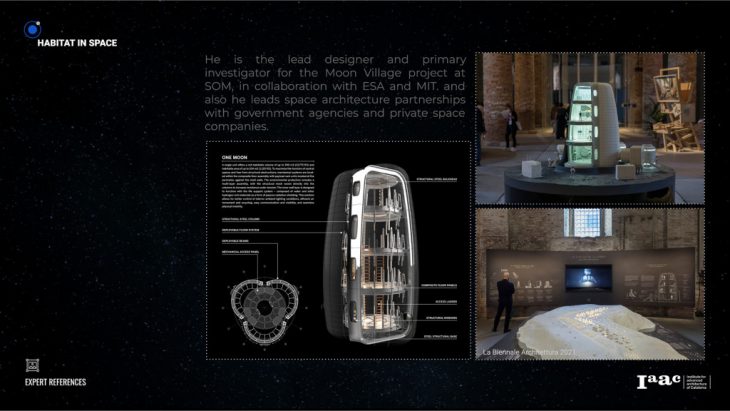
The effects of climate change on our planet have accelerated the need for long-term sustainable solutions in meeting this grand societal challenge. Future space settlements could produce innovations in information technologies used to design, engineer, and build more intelligent settlements on Earth. Space projects arranged by international space agencies or private sectors to build planetary habitats should rely on a multi-disciplinary collaboration of experts from different fields (e.g., space architects, engineers, space geologists). Information modeling technologies can serve as a framework for the implementation of interdisciplinary collaboration, environmental conditions, augmented reality, construction, and building performance.
The questions that were prepared for our guest are:
- Why is Space Architecture important in a time of accelerated change?
- What potential impact can it have on Earth?
- What kind of technologies exists that can be used for the design of a space habitat?
- What are the existing methods and technologies that improve collaboration among experts in the field of space?
- what role can robotic construction play in advancing digital technology?
- What are the main differences and similarities in building design processes and technologies used for both Space and Earth?
- What are the building design method shortcomings that need to be tackled in order to have a meaningful impact on designing settlements beyond earth?
- How do you envision the future practice of space design?
- Twenty years from now, where would you like to live, Earth or Space?

Our Podcast guest:
DANIEL INOCENTE
The expert is the lead designer and primary investigator for the Moon Village project at SOM, in collaboration with ESA and MIT. He works on designing international mixed-use development projects, skyscrapers, airports, residential and commercial buildings and also leads space architecture partnerships with government agencies and private space companies. He previously worked with Gehry Partners, Gehry Technologies, NASA, HKS and is the CEO/Founder of Alethic. Alethic is a design, research, and technology company based in the US.


References:
-
https://www.nasa.gov/
-
https://www.esa.int/
-
https://www.media.mit.edu/
-
https://www.hksinc.com/
-
https://www.foga.com/
- danielinocente.com
- som.com
Paradoxical Information Modeling: Space/Earth Habitat is a project of IAAC, Institute for Advanced Architecture of Catalonia developed in the Master In Advanced Computation For Architecture & Design 2021/2022 by students: Charbel Baliss, Jumana Hamdani, and Faculty: Dr. Maite Bravo